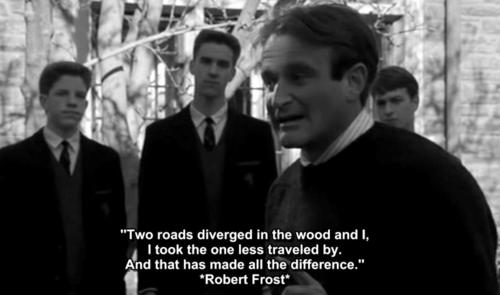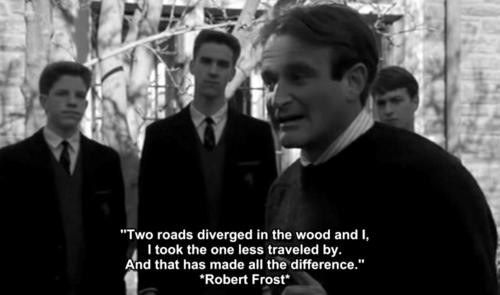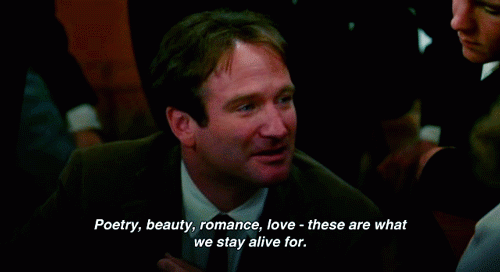
A Fiction Girl in a Poetry World

A lot of Columbia College Chicago Department of Creative Writing MFAers have been sharing Dead Poets Society GIFs and images on social media lately, and I couldn’t resist joining the train.
In an earlier post of mine entitled “Life, Magic, and the MFA,” I mentioned there being think-pieces on how Creative Writing programs may stifle creativity by forcing a growing writer to limit their art to within the self-imposed confines of a label. I also explained ways Columbia College Chicago hopes to chisel away at those parameters. Finally, I ended the blog by saying this:
Because truthfully, when it gets down to it, professors and programs can only do so much. It is ultimately up to us — the student, the writer, the artist. We have to find our own ways to tap into magic.
At the time, I was trying to make myself feel good about my random YouTube binges. But, I also realize tapping into magic means seizing opportunities. Columbia, and hopefully any graduate school, can offer as many resources as possible, but it’s ultimately up to you—the writer, the student, the magician—to reach out for them.
I know. That sounds super cheesy. But this semester, my last semester of classes, I’m also putting my money (or… my education??) where my mouth is.
I’m taking a Poetry Lit class.
And this may just be the best decision I’ve ever made.

The class focuses on African American poetry. The reading list is extensive. It’s heavily discussion-based with papers interspersed throughout the semester and a final paper due at the end. Like most classes at Columbia, the class size is intimate: eleven students. But, though small, it’s also the most diverse class I’ve had in my two years here. Five Fiction students, three Poetry students, and three Nonfiction students. Three of us are in our second year, the rest are first-years.
I know I’ve said this already but let me say it again:
The Reading List Is Extensive.
|
|
|
|
|
|
|
|
|
|
|
|
|
|
|
|
And this isn’t even HALF the poets we’ll be looking into.
I’m excited. I’m excited to examine a form I’ve never studied so closely before. I’m excited for all of the different perspectives that will be brought to the table. I’m excited for how my own work may be informed by the new reading added to my literary diet. I’m excited to be tapping into magic.

